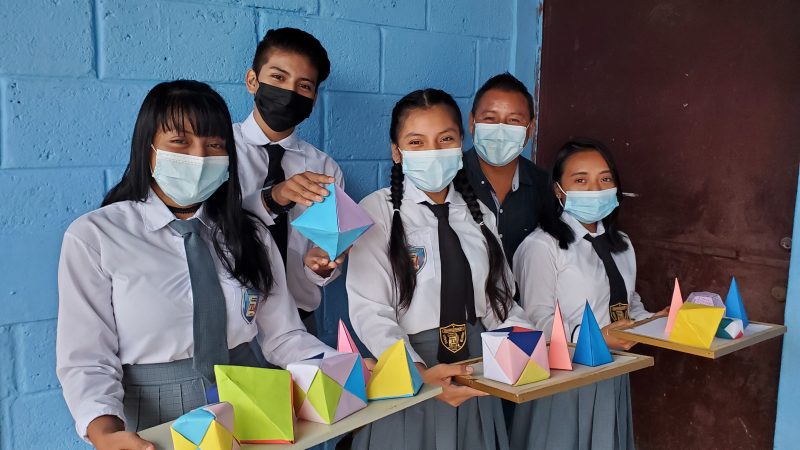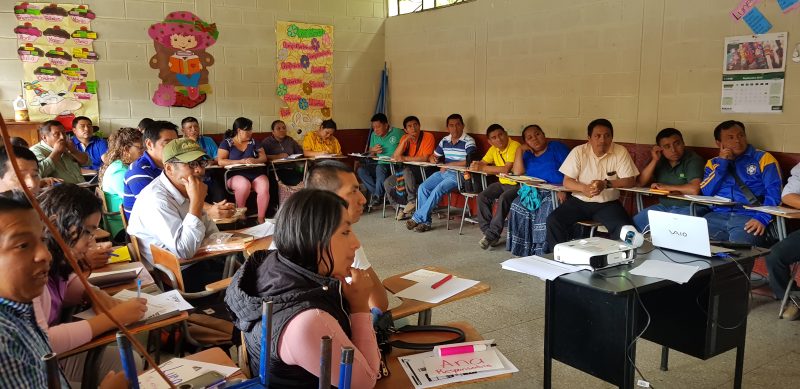
Photo Credit: Pronacom
Guatemalan students (above) with teacher Bayron Isaac Monzón Bautista (second from right), who received training as a result of MCC’s Guatemala Threshold Program.

Photo Credit: Pronacom
Teachers in Guatemala attend a training workshop in early 2020 funded by the threshold program.
Monzón spoke of how teachers are often agents of change and development in their communities. In a country like Guatemala that has faced human development challenges such as low levels of education and high levels of poverty and inequality, the training program has given both teachers and their students opportunities to succeed. Moreover, Monzón spoke of hope. While some Guatemalans are migrating for reasons including a perceived lack of economic opportunities, he believes that his students can work hard, receive a strong and effective education, and find a future in Guatemala. In the words of Monzón, “Guatemala is a multicultural, multilingual, multiethnic, humble, and sincere country, and with a quality education system the country can move forward.”

